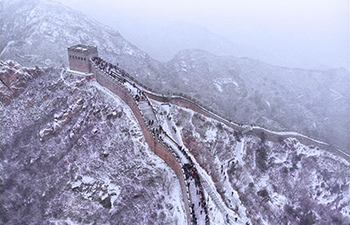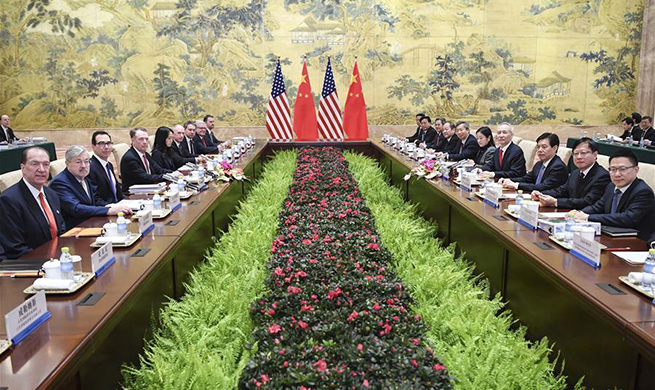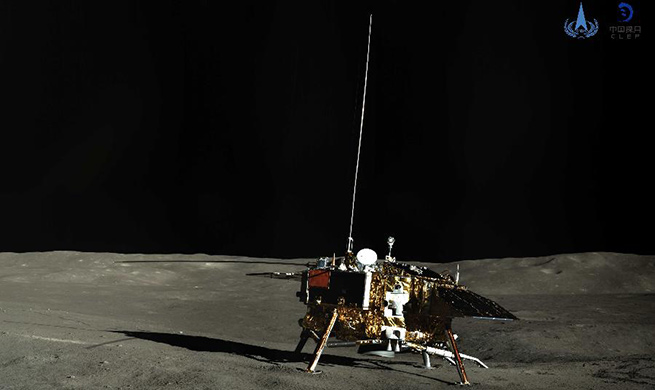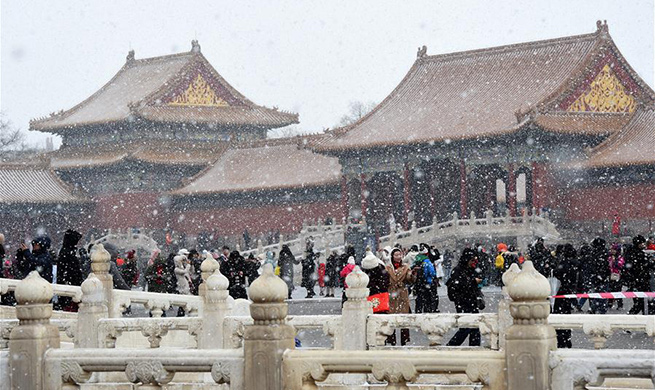TOKYO, Feb. 14 (Xinhua) -- Official campaigning kicked off in Japan's southernmost prefecture of Okinawa on Thursday for a referendum on the controversial plans to relocate a U.S. airbase within the prefecture.
The referendum itself will be held on Feb. 24 and voters will be able to choose "yes," "no," or "neither" as to whether they want to see the U.S. Marine Corps. Futenma Air Station relocated from the crowded residential area of Ginowan to the coastal region of Henoko.
Okinawa Gov. Denny Tamaki, who denounces the central government's plans to relocate the base within the prefecture, has said he hopes the referendum will offer Okinawans an opportunity to voice their opposition to the move.
Though the vote is not legally binding, Tamaki said the vote would be a vital chance for residents to express their will.
"This is an important opportunity to directly express your own will. I hope Okinawa residents will cast their precious votes," Tamaki was quoted as telling reporters Thursday at the prefectural government office.
On Thursday, local media reported that campaigners opposed to the base move took to the streets to voice their opposition.
Rallies were held in the prefectural capital of Naha and Henoko to encourage residents to vote "no" in the referendum. There were no activities held in Okinawa in support of the base transfer, local media said.
An ordinance on the referendum states that Tamaki must notify Japanese Prime Minister Shinzo Abe and U.S. President Donald Trump following the outcome of the referendum.
Okinawa hosts the bulk of U.S. military facilities in Japan, yet the tiny sub-tropical island accounts for just a small fraction of Japan's total landmass.
The new location for the base has an extremely delicate ecosystem unique to Okinawa that the locals desperately want to protect.
Okinawa has long been victim of U.S. base-linked workers' criminal activities, including rape and murder, driving under the influence of alcohol, as well as a steady flow of accidents and mishaps involving U.S. military aircraft.
Tamaki has said the central government's persistent push to continue with the landfill work for the base's relocation is completely unacceptable and against the will of Okinawans, who wish to see the base moved outside of Okinawa and Japan altogether, as anti-U.S. sentiment continues to rise on the island.
Japan's central government began pouring soil into the sea for the replacement facility in December last year, much to the chagrin of local Okinawan residents.













